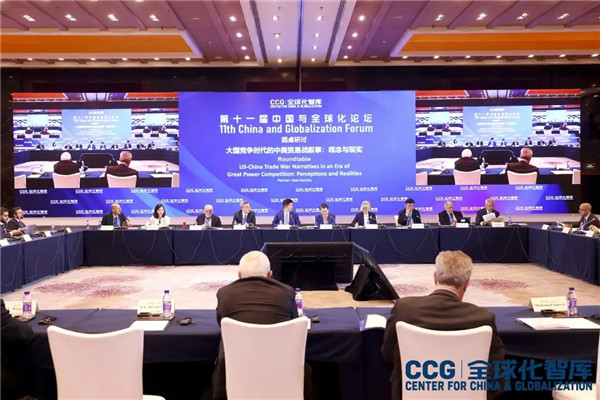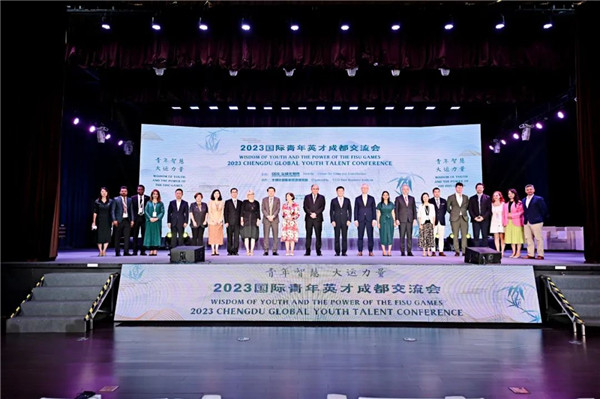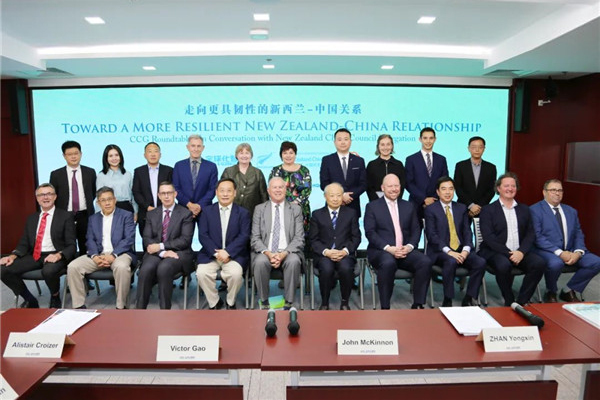CCG Seminar to Explore Implications of US Presidential Election to China-US Relations
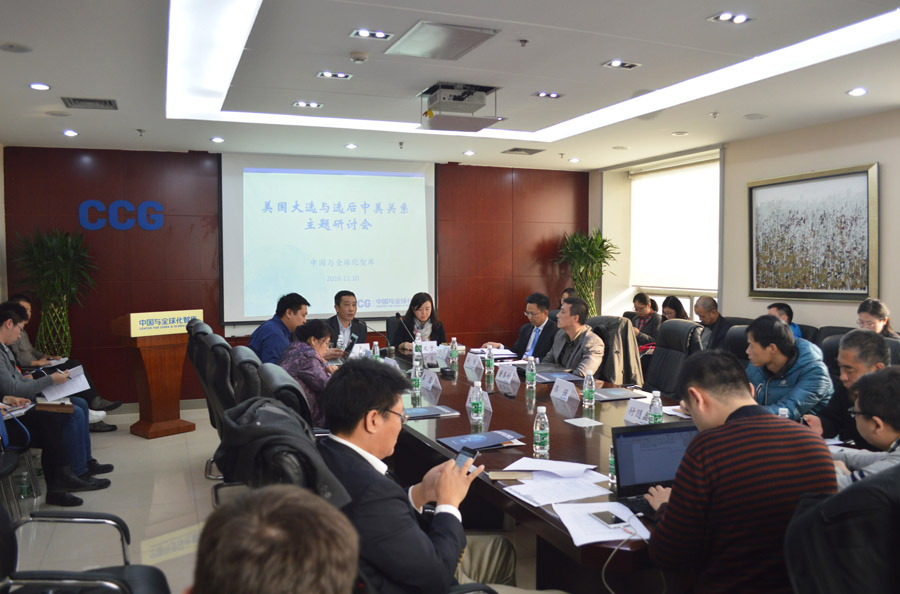
Right after Donald Trump’s surprising victory in the US presidential election, the Center for China and Globalization held a seminar on Nov. 10, 2016, to discuss its implications to the China-US relations now and in the future. It was commonly agreed that Trump’s win was not a random result but rooted from the US political, economic and social reality and it reflects rising social conflicts and divisions on multiple levels and in multiple areas in the United States population.

CCG Vice President Wang Xin introduced the main purpose of the seminar, saying that the focus should be shifted from Trump’s business background to his political agenda, including his administration team, diplomatic policies and measures he will take to heal the nation.
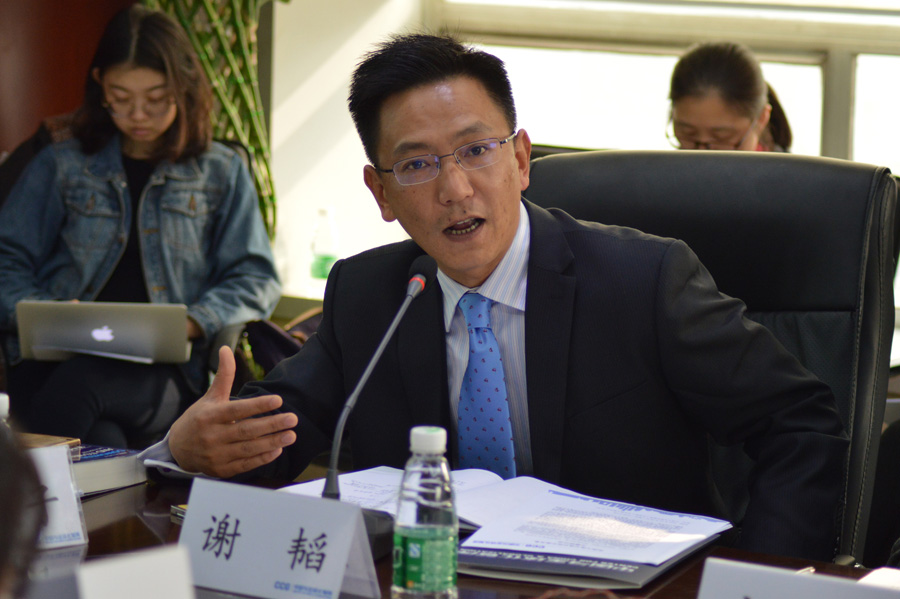
Xie Tao, professor of Beijing Foreign Studies University and CCG’s senior research fellow, pointed out that it is the second time for a public vote to shock the world following Brexit. He believes Trump’s victory is mainly due to the support from under-educated White voters from rural area. On the other hand, Hillary Clinton lost popularity among Latinos and African-American voters. From a historic perspective, it came to a time in 2016 for a Republican government after Democrats ruled the White House for eight years. He acknowledged that it was an unexpected result of the presidential elections, which shows political elite has been detached from general public and the social contradiction due to racial issue has considerably escalated during the Obama administration.
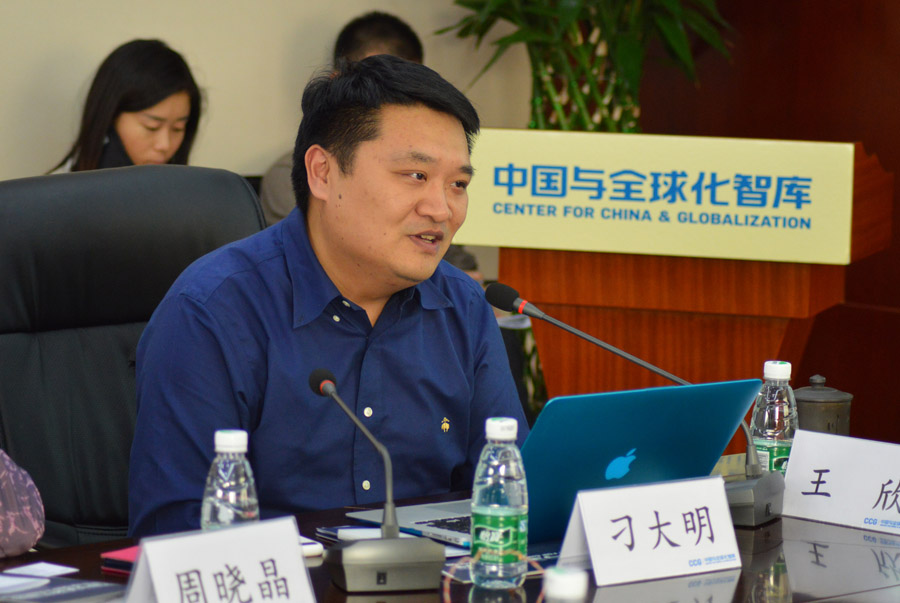
Diao Daming, associate research fellow from the Institute of American Studies at the China Academy of Social Science, also agreed that the US presidential elections usually go through a cycle every 20 – 30 years and the Year 2016 represents the beginning of a new cycle. The result, as he believes, reveals the anger and anxiety of the White voters for rising social contradiction and US’ declining global influence.

An Gang, editor/journalist from the World Affairs Magazine, acknowledged the failure in predicting the US presidential result, because the real trend of public opinion was overlooked and underestimated. He took a positive note, saying that Trump’s election may create an unprecedented opportunity for China and the United States to build a new system through collaboration and cooperation to maintain security and prosperity in Asia and the world. A pre-condition is that the two countries can resolve the current conflicts first. He also noted that Trump has made it clear to reduce the US military existence in Asia and create a buffering zone from the East Asian region, which may cause Obama’s “Pivot to Asia” initiatives to lose momentum.
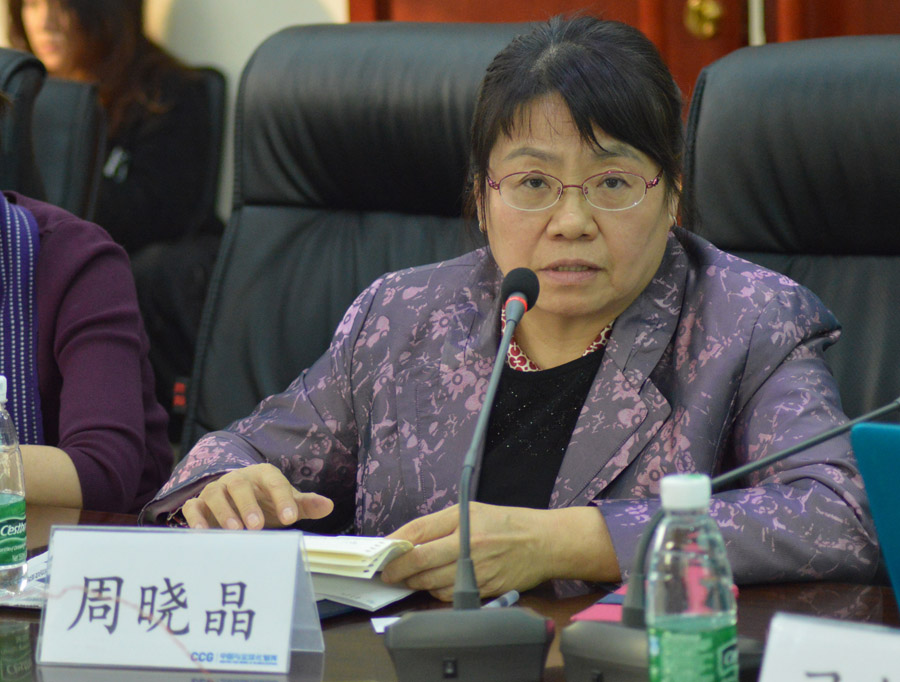
Zhou Xiaojing, former director of the Institute of Asian and African Studies at the Development Research Center of the State Council, called the latest US presidential elections having “revolutionary impact on the US democratic politics.” However, the stock market didn’t take a nosedive after the elections, which shows that global investors remain calm and rational. Zhou warned that China must stay alert and prepared since Trump may impose pressure on China in terms of RMB exchange rates and trade issues and deglobalization may gain more momentum in the future. She advised the Chinese government to maintain the channels of communications with the US government and form new consensus on developing the bilateral economic and trade relations. This way, China can secure its progress and benefit in the globalization.
Wrapping up the seminar, CCG President Wang Huiyao said that the discussion was held at a right timing after the US presidential election to examine the new challenges and opportunities in the China-US relations under Trump’s administration. He proposed that the two countries, as the key powerhouse for the global economic growth, should strengthen cooperation and manage their differences to promote the world’s development and prosperity. As the US-led TPP and TTIP negotiations encountered setback, China can initiate a more inclusive Free Trade Agreement in Asia Pacific that integrate all TPP and RCEP members to broaden the investment and trade cooperation and benefit more countries in the region.
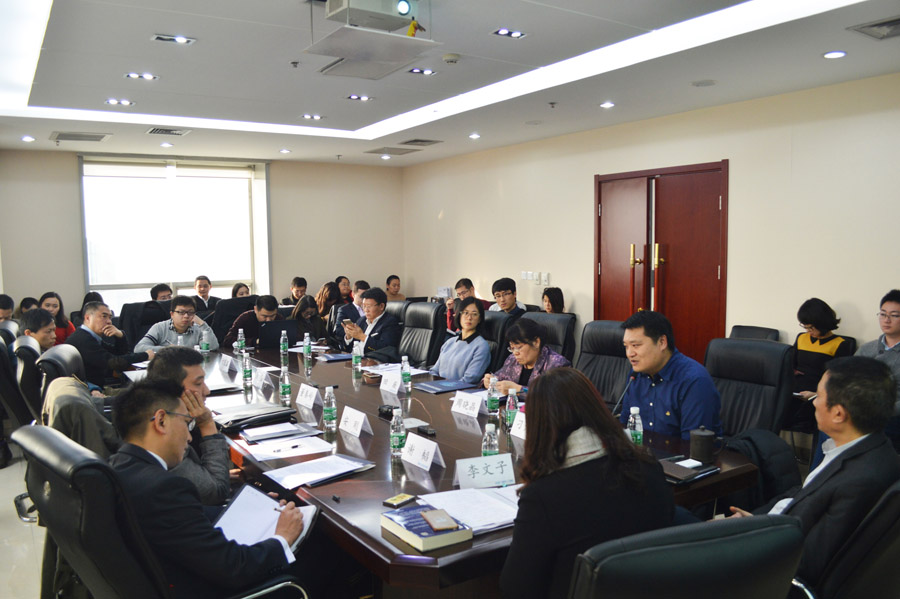
LocationBeijing
